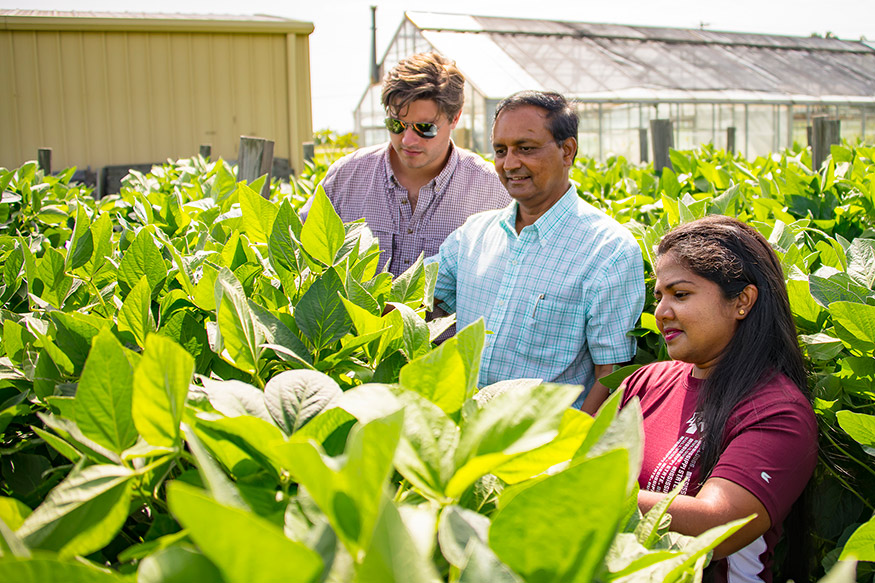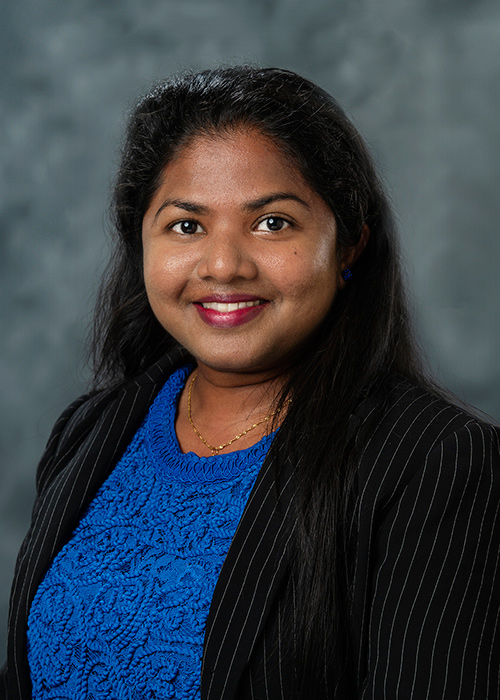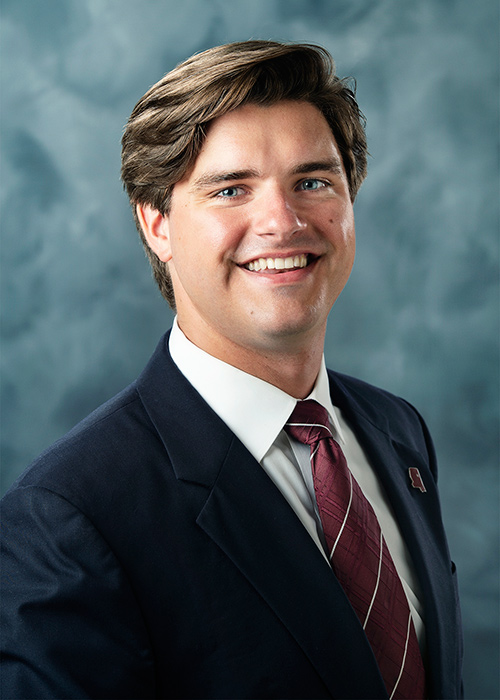Contact: Vanessa Beeson

STARKVILLE, Miss. —Two Mississippi State graduate students in the College of Agriculture and Life Sciences recently were among only 40 worldwide selected for a training and leadership program focused on global food security at Purdue University.


Charles “Hunt” Walne and Chathurika “Chathu” Wijewardana attended the Borlaug Summer Institute on Global Food Security at the West Lafayette, Indiana, campus. Part of the U.S. Borlaug Fellows in Global Food Security program, the training is funded by the U.S. Agency for International Development, or USAID, under the Feed the Future Initiative.
Fifteen graduate students from Bangladesh, Ecuador, Ethiopia, Guatemala, Kenya, Nepal, Niger, Nigeria, Rwanda, Senegal and Sri Lanka joined 25 students from the U.S. at the two-week program. It included lectures, workshops, farm visits and a group project in which students delved into pressing food security issues. Groups were assigned to a specific country identified by USAID, collaborated on a simulated multidisciplinary grant proposal, and presented their findings to USAID staff and Purdue faculty.
Walne’s and Wijewardana’s team won the student competition and will travel to the World Food Prize and Norman E. Borlaug International Symposium in Des Moines, Iowa, in October 2018.
“The institute’s goal is to help graduate students attending U.S. institutions better understand the big picture when it comes to global food security,” said Raja Reddy, MSU research professor who mentors both Walne and Wijewardana.
Reddy, also director of the Mississippi Agricultural and Forestry Experiment Station’s Soil-Plant-Atmosphere-Research unit, said this opportunity aligned with his goal of fostering teacher-student mentorship.
“Mentorship to prepare future leaders in our profession and expose students to global problem-solving skills in food security is vital,” Reddy said. “I encouraged these talented students to seek the chance to gain a holistic understanding of the complex challenges surrounding global food security.”
Walne said the group project was the highlight of his time at Purdue. His team, of which Wijewardana also was a part, was assigned to Bangladesh, the most densely populated country in the world, where excessive seasonal flooding affects much of the country’s lowland area. The students came up with a three-tiered approach that consisted of floating vegetable gardens, aquaculture farms and rice cultivation.
Walne said the positive, innovative spirit prevalent within the group and throughout the conference was the biggest takeaway for him.
“Oftentimes we approach difficult, complex problems like looking in the rearview mirror searching for answers from the past. We aren’t going to solve today’s problems by trying to fix our past,” Walne said. “Keeping our eyes on the road ahead is key, with innovation and adaptation as a tool to successfully tackle the complex global problems of today and our future to ensure food, energy and water security for our generation.”
Wijewardana said the chance to connect with people from different disciplines was her favorite part of the institute. She said everyone in attendance was eager to eradicate global hunger, poverty and malnutrition.
“A diverse group of people with multidisciplinary backgrounds and skills with one common goal can make a real difference in addressing issues facing the world,” Wijewardana said. “As the next generation fighting hunger, we know we must manage the global landscape in support of sustainable food systems.”
Wijewardana pointed out that the students intend to stay in touch via social media.
“This will let us share our experiences wherever we go, influencing each other’s work, which will stay with us throughout our career,” she said.
In recent years, MSU has become increasingly involved in the World Food Prize, a nonprofit organization founded by Borlaug. MSU’s College of Agriculture and Life Sciences plays host to the Mississippi Youth Institute each spring where high school students write essays and spend a day on campus presenting their research and discussing global food security with various experts from around the world.
For more information, visit www.cals.msstate.edu.
MSU is Mississippi’s leading university, available online at www.msstate.edu.